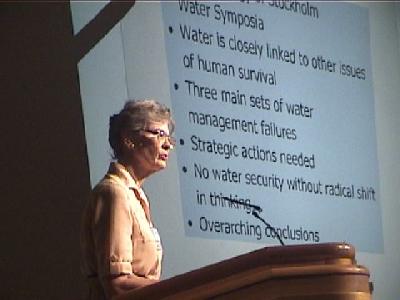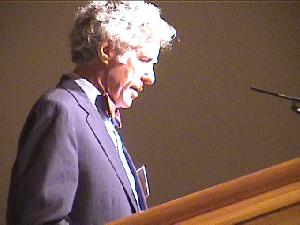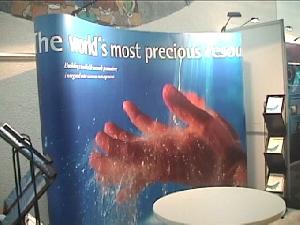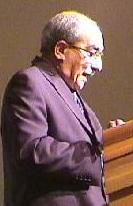Letter from Stockholm
The Symposium

Other speakers, including the winner of the 2000 Stockholm Water Prize, Dr. Kader Asmal, Minister of Education for South Africa, caution against focusing on alarmist views of water conflicts and divisive, encouraging participants to emphasize the "powerful binding properties of water." |
The Symposium is organized by the Stockholm International Water Institute (at www.siwi.org) and is the brainchild primarily of one woman, Professor Malin Falkenmark, a renown Swedish water scientist who for decades has with able colleagues helped steer Sweden to take a lead in addressing the spectrum of water-related issues around the globe. Having dealt with major industrial pollution in the past decades, especially from paper-related industries, Sweden in general and Stockholm in particular are intent on showing the world the importance of this often-neglected resource. (Local residents take obvious pride in the fact that one can swim in the sea or fresh water right in the town of Stockholm, although the swimming season is short due to the northern climes. However, it should be noted that the Stockholm Water Festival, which for many years was held in conjunction with the Water Symposium, is no longer happening, due according to one source to lack of public interest in the various festivities and aquatic events.) On Monday Dr. Falkenmark helps launch the official symposium program by offering a ten year message from previous symposia, which leads into the keynote address– "How Water Scarcity Will Shape the New Century" by Lester Brown of the World Watch Institute. The theme for the symposium is "Water Security for the 21st Century– Innovative Approaches," and Brown and other speakers warn of existing and potential conflicts-- political, economic and possibly armed-- around control of water resources. Particular "hot spots" include the Nile basin, the middle east and China, where groundwater reserves are being drained at an especially fast rate.
|



